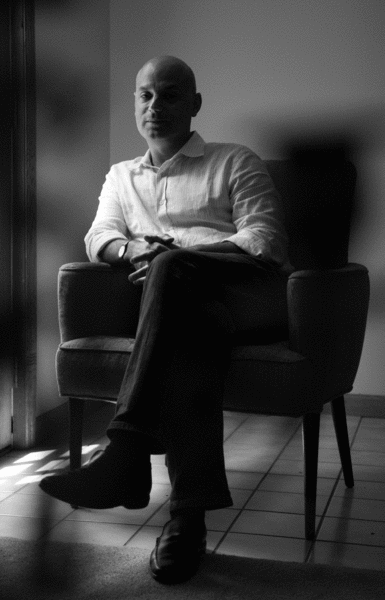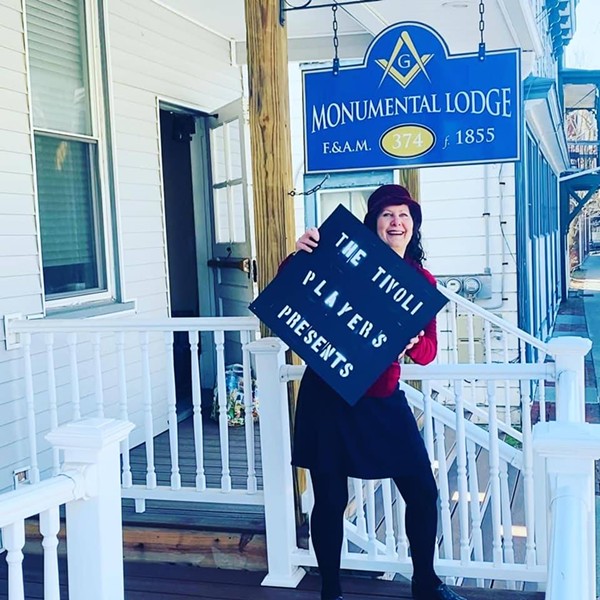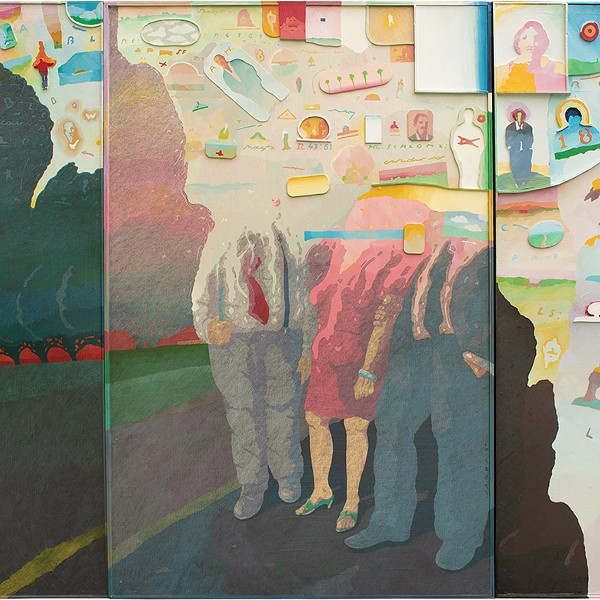A young boy walks into a room, and his elderly relatives burst into tears. The reason—usually offered in Yiddish—is that he resembles his great-uncle Shmiel, who, along with his wife and four beautiful daughters, was killed by the Nazis.
This piece of family lore was repeated, with great displays of emotion and precious few details, throughout Daniel Mendelsohn’s childhood. After recounting it in his 1999 memoir The Elusive Embrace, the author set out to discover exactly what happened to Shmiel and his family, tracking down relatives and surviving witnesses on several continents. The resulting book, The Lost: A Search for Six of Six Million, was a runaway bestseller, garnering literary respect while selling like hot cakes in 12 different countries.
So what do you do for an encore? When Mendelsohn isn’t writing about himself or his family, he reviews books, plays, and films for the New York Review of Books, the New Yorker, and other A-list periodicals. “Being a critic is what I am,” he declares on a sunny afternoon in his Bard College apartment. After spending “a solid five years” on The Lost, he decided to collect his critical writings, “to have that part of my personality between covers.” How Beautiful It Is and How Easily It Can Be Broken, forthcoming from HarperCollins, has already won praise from Publishers Weekly and Booklist.
Mendelsohn’s clearly enjoying his life. He just turned in a manuscript he’s been polishing for 10 years—a translation of C. P. Cavafy’s complete poems, to be released by Knopf in April 2009—and he’s about to fly to Capri; a packed red suitcase sits on the rug. It’s enough to swell anyone’s head, but Mendelsohn hasn’t forgotten his roots. When he finished his PhD and moved to New York in 1994, he wrote freelance magazine fluff like “Food Courts of Las Vegas.” “I lived on ramen noodles for three years. I knew every CVS that sold them for five for a dollar instead of four for a dollar.” He grins. “I am not one of those people who pretends to be blasé about having an international bestseller.”
That grin flashes often; a slightly skewed tooth lends it a Mephistophelean air. Mendelsohn’s head is neatly shaved, his light-blue eyes rendered even more striking by high, arching brows. In repose, his gaze is intense, even challenging; one senses that nothing gets past him without being noticed. He wears his erudition lightly, with a vocabulary that swoops from “meretricious” to “nutty,” sometimes in the same sentence. His coffee table displays books in several languages; his sink displays Believe in God breath spray and Oy Vey body detergent. There seem to be a lot of Daniel Mendelsohns.
This, indeed, is the theme of his extraordinary memoir. Subtitled “Desire and the Riddle of Identity,” The Elusive Embrace examines the multiple lives one person may lead, opening with “For a long time I have lived in two places.” One is the New Jersey suburb where Mendelsohn lives part-time with a woman and child while teaching classics at Princeton. The other is a studio apartment near Chelsea’s “gay ghetto,” the epicenter of a cruising life he describes with startling frankness.
Mendelsohn’s route to fatherhood was nontraditional. In 1996, when a friend was unpartnered and pregnant, he went with her to the delivery room. The depth of his bond with her son astonished him. He started staying with them several nights a week, at first because it was close to his teaching job, later because it was part of the complex geography of “home.” Four years later, she adopted a second son; Mendelsohn calls the boys, in print and in person, “my kids.”
Since that time, “home” has expanded to a third address, at Bard, not to mention a plethora of hotels. “It’s easy to get caught up in this endless schlepping around promoting your book,” he says. At one point Mendelsohn flew to France four times in three months. “I’m huge in France,” adding, “There’s a different response in Europe because it happened in Europe. People come up to you afterwards and tell their stories, their family’s stories. It’s not theoretical.”
His own family’s response to The Lost was “very emotional.” Mendelsohn’s four siblings joined him on many research trips to Eastern European villages and to Auschwitz; his brother Matt’s photographs appear throughout the book. “My mother had the hardest time—she had nightmares every night.” (Marlene Mendelsohn’s only request as her son wrote the manuscript was a plaintive “Did you put that I had nice legs?”) Publication was “a big thrill for everyone,” Mendelsohn says. “My father’s so cute—every day he checks my Amazon rating. This is two years after the book came out.”
He anticipates a calmer reception for How Beautiful It Is And How Easily It Can Be Broken, which takes its title from a stage direction in Tennessee Williams’s “The Glass Menagerie.” The book includes 30 critical essays culled from a vast body of work. As he reviewed his reviews, Mendelsohn noticed recurring themes: masculinity and femininity, images of women, sexuality—and, of course, classics. (A graduate student once challenged him to write a review of anything without referring to Greek tragedy—‘‘a bet I lost,” he says ruefully.) In the book’s introduction, he defends this propensity. “If I mention Aristotle’s or Horace’s theories of poetry in my review of Troy, it’s not out of some kind of loyalty for my subject—product placement for the Classics—but because no one has ever stated as crisply and usefully just what it is that epic is supposed to do for its audience.” His reviews of wannabe epics Troy and 300 are a hoot, including such zingers as “Some of the dialogue is in a mode perhaps best described as faux-legendary—the kind typically accompanied by much clasping of forearms.”
How Beautiful opens boldly, with a sock in the jaw to The Lovely Bones. Analyzing why Sebold’s cliché-ridden novel became a breakout phenomenon, Mendelsohn concludes that its “feel-good redemption” and “infantine vision of Heaven as a cross between a rehab program (Susie gets an ‘intake counselor’ when she arrives) and an all-you-can-eat restaurant” was ideal comfort food for post—9/11 America. The book’s final entry, “9/11 at the Movies,” on Oliver Stone’s World Trade Center and Paul Greenglass’s United 93, also includes the author’s own wrenching account. Driving downtown to pick up a friend, Mendelsohn looked up as a plane streaked into the North Tower. “A gigantic ball of bright orange fire ballooned out of the tower, followed by vast plumes of dense, black smoke,” he reports. “The first, irrational thought that came into my staggered mind was that someone was making a blockbuster disaster movie.” This tension between what is real and what is created to simulate reality informs the whole essay.
Mendelsohn observes that “however random the assignments you accept, you always wind up writing your own intellectual autobiography,” and his essay on Brokeback Mountain is a case in point. When his editor assigned a review, he demurred. “It’s a wonderful movie, yet there’s no traction. But something was working my nerve.” After seeing it for the third time with his friend Michael Chabon, Mendelsohn saw a newspaper ad trumpeting “the movie everyone in America is in love with.” Lightning struck. “It’s not something in the movie that’s bothering me, it’s how it’s been received, the spin on it as not a gay movie but a ‘universal love story.’” He went upstairs and pounded out the essay in one sitting, fueled by outrage. “Both narratively and visually, Brokeback Mountain is a tragedy about the specifically gay phenomenon of the closet,” he wrote, underlining a crucial distinction from social tragedies of the Montague/Capulet model: “Those lovers, no matter how star-crossed, never despise themselves.” (From The Elusive Embrace: “There is no gay man of my generation whose first experience of desire was not a kind of affliction, that did not teach us to associate longing with shame.”)
“One of the things I like about writing for the New York Review of Books is that it’s like having a conversation,” says Mendelsohn, who exchanged pointed letters with the film’s producer, James Schamus. But the critical scene is changing fast. “Books coverage is shrinking everywhere: newspapers, magazines. There’s more competition for less coverage nationwide,” he observes. “What interests me right now is the culture of criticism being transformed by the Internet and blogs, the blogosphere. Criticism used to be self-evidently a function of people having a certain training and background, which gave them a platform for opining. Now, everybody’s a critic, to quote my grandmother.”
Though Mendelsohn blames bloggers for a “glut of mean and snarky—it’s the snarky moment,” he also offers a corrective to the myth of the power-mad critic, sharpening his axe for the kill. “Critics go into everything hoping to be delighted,” he asserts. The negative “comes out of disappointment that something you wanted to love has not met its potential.”
Mendelsohn writes in bed, propped up on lots of pillows with his laptop. He starts by turning on the TV (“I can’t stand to do it alone, that’s the worst part of writing”), favoring Law & Order reruns or CNN. “I trick myself. I’m not writing, I’m just watching TV, and if an opening line happens to occur to me, I’ll write it down,” he explains. “If I think of my lede, I can write the whole piece. I’m in. I know the terrain. If I don’t have that first sentence, I can’t write anything else. I spend a lot of time eating Doritos and procrastinating: Oh, I should plant more lavender. Then there’s the point where my eyes roll back in my head and I’m there; I have no idea the TV is even on.” He shrugs. “I used to be ashamed of it, until a shrink I was seeing said, ‘What’s the problem? It’s not like you’re blocked.’”
“I’m awed by friends who write 1,500 words a day, or 10 pages every morning. It’s idiosyncratic. Whatever works for you. But I hate the icky period, the Doritos period. And people who leave off in midsentence?” Daniel Mendelsohn shudders extravagantly. “This is what comes of being raised by strict, neat parents. I have to get to the end.”

















